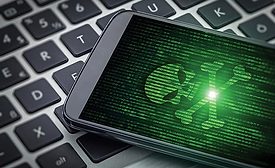Cybersecurity News
COVID-19 five times more disruptive to supply chains than cyberattacks
Six out of ten businesses target geographic diversification of supply chains to build resilience.
August 11, 2020
Sign-up to receive top management & result-driven techniques in the industry.
Join over 20,000+ industry leaders who receive our premium content.
SIGN UP TODAY!Copyright ©2025. All Rights Reserved BNP Media.
Design, CMS, Hosting & Web Development :: ePublishing











